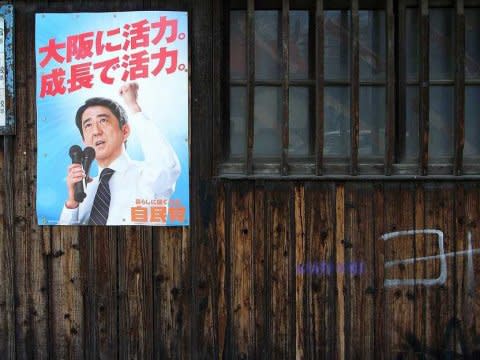Japan Just Had Its Worst Day In A Month, And US Markets Are Heading Lower

U.S. stock futures are negative after a rough day in Japan.
The Japanese Nikkei 225 fell 3.0% Friday as the Japanese yen strengthened against the U.S. dollar, despite a better-than-expected inflation reading there.
The June consumer price index revealed an annual inflation rate of 0.2%, up from -0.3% in May and ahead of the consensus estimate of 0.1% inflation.
The release suggests that "Abenomics," the experimental stimulus program designed to reflate the Japanese economy after more than a decade of persistent consumer price deflation, may finally be kicking in. However, stripping out food and energy, the economy remained in deflation. This measure of prices was still down 0.2% year over year, indicating that higher energy prices were the main driver of headline inflation in June.
Following the release, the dollar is 0.7% lower against a strengthening yen today, currently trading around ¥98.55.
Though futures in the U.S. are down, European markets are mixed in morning trading.
The French CAC 4o is up 0.4%, and the Spanish IBEX 35 is up 0.9%.
However, the German DAX is down 0.6%, the London FTSE is down 0.3%, and the Italian FTSE MIB 35 is 0.1% lower.
New fund flow data showed record inflows into high yield debt and junk bond funds this week. U.S. equity-oriented funds expanded assets under management by $4.3 billion.
And this morning, JPMorgan's chief U.S. equity strategist Tom Lee hiked his year-end price target for the S&P 500 to 1775 from 1715, making him the most bullish equity strategist on Wall Street. His forecast implies an additional 5% upside for the index for the rest of the year and is largely driven by an improving economic picture in Europe.
More From Business Insider

